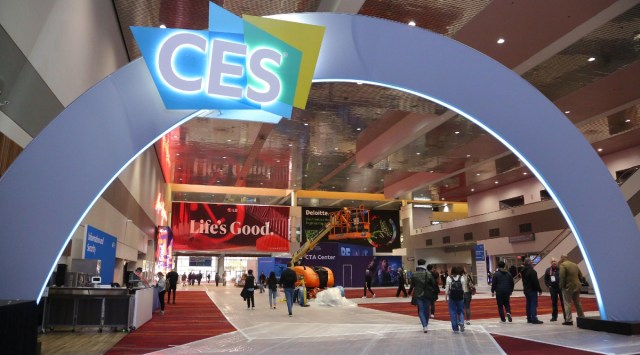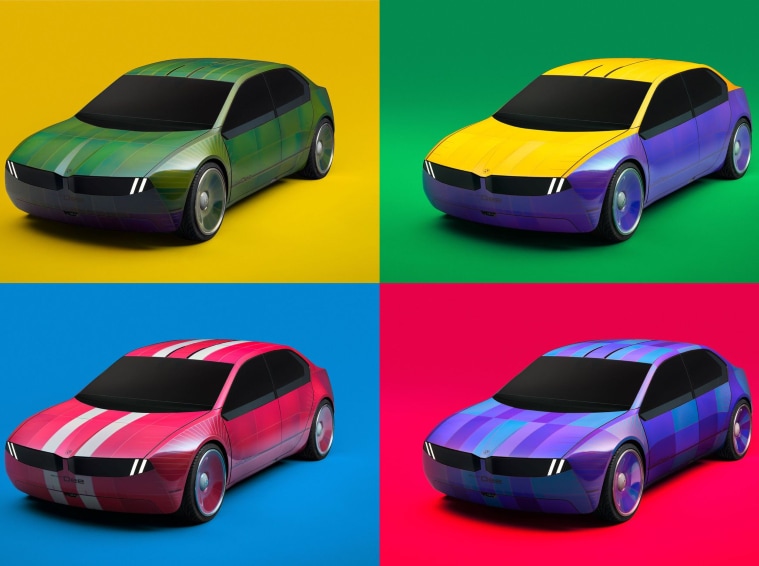This year’s Consumer Electronics Show (CES) in Las Vegas was different on many levels. Not only did the show have many ‘wow’ products, but CES 2023 also gave a hint at the rapid change in consumer behaviour. Throughout the show, many brands showcased technology that isn’t ready for primetime yet but somewhere down the line, the same products also laid the foundation of a vision that will become the reality years from now.
A colour-changing car, a smart car experience, a toilet sensor that tracks your pee, and laptops with 3D screens are products that reassure all the developments in consumer tech and smart cars, despite recent setbacks, are only moving forward.

Here are four emerging trends from CES 2023 that concluded Sunday.
It’s a smart car revolution
CES is known for showcasing massive TVs and wild concepts, but it’s also becoming a destination to show cars of the future. At CES 2023, many known automobile brands demonstrated exciting car concepts but at the same time, we also saw a consistent effort from companies like Samsung to show their own smart car platforms. Sony unveiled the Afeela, an electric midsize sedan, which is described as a “moving entertainment space.” The EV, which is made in collaboration with Honda and will hit roads in 2026, prioritises entertainment and interaction.
Meanwhile, BMW showcased the i Vision Dee, a futuristic midsize electric sedan with a digital assistant, colour-changing technology and an augmented-reality windshield. Volantis showed off its futuristic Ram Revolution Concept vehicle, complete with an AR display, a massive moonroof and a large 28-inch touchscreen.
But it wasn’t just futuristic electric cars at CES. South Korean heavyweights Samsung and LG each showcased their respective smart car platforms LG’s Cockpit Computer for cars let drivers call roadside assistance and even check on other smart appliances at home, while Samsung demoed a smart-car safety platform with subsidiary Harman international.
 BMW i Vision Dee, which stands for “Digital Emotional Experience,” is the most radical concept car we have seen in years. (Image credit: BMW)
BMW i Vision Dee, which stands for “Digital Emotional Experience,” is the most radical concept car we have seen in years. (Image credit: BMW)
And things got more exciting with GeForce Now, Nvidia’s popular cloud gaming service that lets you play games like Fortnite and Apex Legends on your phone and TV, and will come to several internet-connected cars. Google, meanwhile, showed a new version of Android auto software that prioritises navigation, communication and music.
Story continues below this ad
All these auto-related announcements at CES 2023 show one thing: our relationship with a car may change in the future. CES also gave us a preview of how different automakers and tech companies are coming together and bringing their expertise to own the car experience before Apple launched its long-rumoured electric car.
Smart toilet tech is taking over the stage
Over the years, there has been an industry-wide focus on creating an ecosystem around digital health. Yet, the process of tracking and managing your health at home, especially analysing urine, is cumbersome. At CES this year, Withings and Vivoo demonstrated new solutions to check your health every time you use the bathroom. French health-tech company Withings unveiled its U-scan device that tracks can attach to their toilet bowls to collect and analyse urine without requiring you to capture a sample or use strips.
https://platform.twitter.com/widgets.js
The palm-sized sensor will come with two cartridges that will be available to check various stats: a nutrition and metabolic tracker that checks pH, ketone, vitamin C levels, and more; and another one to help track women’s luteinizing hormone for ovulation cycles. Similarly, Vivoo is also building its own toilet-mounted device, which can carry out urine tests to detect health issues within 90 seconds. The system tests four wellness parameters, which can highlight certain deficiencies or abnormalities which can be used for the early detection of some illnesses.
Glass-free 3D laptops for demanding professional users
They were once seen as the future of entertainment but stereoscopic 3D displays were declared dead long ago due to unacceptability among consumers. The 3D tech is back now, this time in a new glasses-free avatar, opening new cases for professional users. At this year’s Consumer Electronics Show, Asus unveiled its ProArt Studiobook, which is pitched as the first laptop to have a 3D display, with no glasses needed. The high-end laptop takes advantage of Asus’ Spatial Vision, a “glasses-free (autostereoscopic) 3D OLED technology,” that uses a combination of a lenticular lens and advanced eye-tracking camera technology to create decently realistic 3D images.
 Asus’ new laptop makes it easier to view images in 3D with a new glasses-free 3D OLED display. Image credit: Asus)
Asus’ new laptop makes it easier to view images in 3D with a new glasses-free 3D OLED display. Image credit: Asus)
Acer has also been experimenting with glasses-free 3D displays in laptops for years but Asus’ version is much improved and works well. 3D TVs were a colossal flop due to the high cost involved and lack of content but now things are different. Companies like Asus are a lot excited about the potential use case of 3D laptops, especially now that the industry is gearing up for the metaverse. 3D content is needed to run on mixed-reality and VR headsets, and devices like the ProArt Studiobook 16 OLED will become an integral tool for professional 3D work. With Asus bringing a glass-free 3D display technology to a cheaper Vivobook model, it will become a big part of laptops in the coming years.
Story continues below this ad
Extended reality, the next stage boom in consumer tech?
Virtual reality and augmented reality were other big things at CES. HTC grabbed the headlines and unveiled a standalone Vive XR Elite headset. It follows a similar daybook to Meta’s flagship Quest Pro but looks more compact and adds support for those who need vision correction for $1,099 price. Meanwhile, TCL, best known for its TVs, jumped into the AR bandwagon with glasses that promise a full AR experience. They look reminiscent of the 3D glasses of yesteryears but can do a whole lot more including automatic live translation.
 TCL’s augmented reality prototype glasses can be used for things like live text translation. (Image credit: TCL)
TCL’s augmented reality prototype glasses can be used for things like live text translation. (Image credit: TCL)
But VR and AR are still complicated technologies. The current problem is, there is no fixed approach or standard in place that streamlines these headsets. Some companies are making headsets that need to be tethered to a smartphone and console, while others making completely mobile headsets. We also don’t know which technology is better suited for entertainment and enterprise. That being said, every big and small brand sees the “metaverse” – the concept of shared worlds driven by virtual products and digital experiences that are highly immersive and interactive, as the next big opportunity in tech.



 BMW i Vision Dee, which stands for “Digital Emotional Experience,” is the most radical concept car we have seen in years. (Image credit: BMW)
BMW i Vision Dee, which stands for “Digital Emotional Experience,” is the most radical concept car we have seen in years. (Image credit: BMW) Asus’ new laptop makes it easier to view images in 3D with a new glasses-free 3D OLED display. Image credit: Asus)
Asus’ new laptop makes it easier to view images in 3D with a new glasses-free 3D OLED display. Image credit: Asus) TCL’s augmented reality prototype glasses can be used for things like live text translation. (Image credit: TCL)
TCL’s augmented reality prototype glasses can be used for things like live text translation. (Image credit: TCL)





